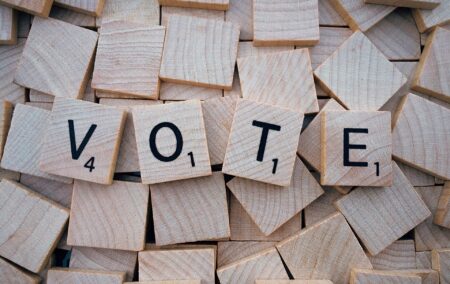In the run-up to the 2024 election, once again South Africans will grapple with questions.
‘Whom do I vote for?’
‘What do I want from a political party?’
‘What political party best represents my interests?’
Non-voters will be implored to make their crosses in a landmark election that will see the face of South Africa change – for better or for worse.
Voting sounds like a chore, and is treated like one too, at least based on the facial expressions of the people standing next to me in line to vote in the 2021 election. But voting has a real impact on the way you live your life. The cross that you make impacts how services are delivered, how crime is fought, how unemployment and poverty are tackled, and how the government spends your money.
I too struggled with the eternal question: ‘Vote or don’t vote? What difference will my vote matter?’
Swellendam
To illustrate the importance of voter turnout, especially in hotly contested elections, I’ll take the recent by-election in Swellendam’s Ward 2.
The difference between the DA retaining its majority and having to consider going into a coalition in Swellendam in the rural Western Cape was just 30 votes. This is the average size of a suburban school class.
When the margins are so close, every vote counts.
What you do or don’t do is your prerogative, but South Africa faces a mountainous challenge, a mere 30 years into democracy. Low voter turnout is democratic South Africa’s biggest threat.
Voter turnout, measured as the proportion of registered voters who vote, has been falling in every national election since 1994, from a high of 89% to a low of 69% in 2019. The statistics are even worse when voter turnout is viewed in terms of the voting age population (VAP), i.e. people over 18 years old but not necessarily registered to vote: 86% in 1994 down to 49% in 2019. For a country supposedly proud of our democracy and the freedoms it endows us with, we clearly aren’t showing it at the ballot box. Lacklustre voter registration is the key problem facing turnout at elections in South Africa. Despite ongoing registration drives, voter registration is not keeping up with the growth in the voting age population, with young people disproportionately less likely to register.
There is a multitude of factors as to why eligible voters do not register and do not vote. Registration alone would help spur voters to the polls. Research into voter abstention following the 2021 Local Government Election found that approximately 31% of respondents cited individual barriers, such as not being in their ward, and 22% administrative barriers which include not being registered to vote. Roughly 17% noted they were “uninterested or disillusioned” with voting.
Polling data
Ipsos polling data from November 2021 shows that there are around 41.2 million people that are eligible to vote. Of those, 26 million are registered voters. This leaves a massive untapped market of voters waiting to be wooed by political parties in the run up to the next election in 2024.
In 2019, there were 48 parties that contested the general election. They were in a market for your vote. This is a market characterised by fierce competition, despite the decline in voter-turnout.
But how do you get apathetic voters to the ballot box?
Get them registered for an incentive programme. There are millions of South Africans who are members of retail incentive programmes, because of the benefits they receive when they purchase items. Pick n Pay’s Smartshopper and Checkers’ Xtra Savings come to mind. It incentivises them to purchase goods and services, so why can’t voting have a similar system?
It does!
I have joined the IRR’s #PledgeToVote campaign, a movement which prompts and incentivises prospective voters to register to vote, generate awareness around voting and elections and encourage fellow South Africans to take that final step to the polling station to vote.
Pledging and registering to vote will go a long way in ensuring that your voice is heard. No matter how you do it.
We can do this! One pledge at a time. Put that incentive programme to good use.
Help us help South Africa in achieving the goal of building a thriving democracy that we all participate in. The time for change is upon is. Let’s seize it!
If you like what you have just read, support the Daily Friend

